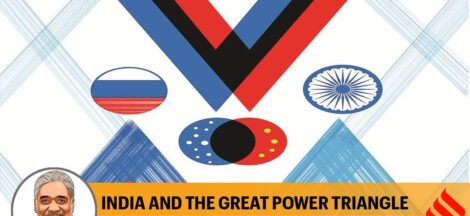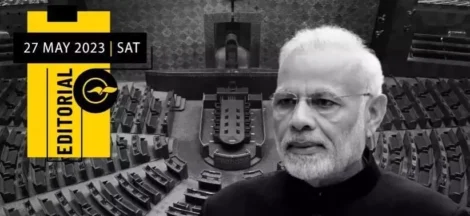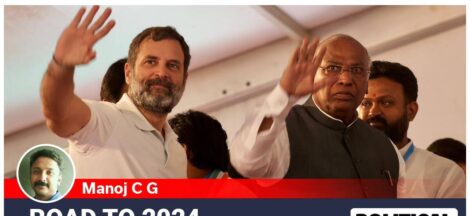By Amritananda Chakravorty
“Finally!” “Relieved!” “Long Overdue!” these were the reactions from the members of the LGBTI (lesbian, gay, bisexual, transgender, and inter-sex), after the historic judgment of the Supreme Court of India in Navtej Johar & Ors. vs. Union of India [Writ Petition (Criminal) No. 76 of 2016]. On 6th September, 2018, the Supreme Court struck down the archaic law of Section 377, Indian Penal Code, 1860 (‘IPC’), which criminalised certain sexual acts between consenting adults. It heralded an end of an almost two decade long legal struggle against the law that had effectively made an entire community of people ‘second class citizens’ in their own country.
In a judgment running into 493 pages, with four concurrent opinions from Chief Justice Dipak Mishra, Justices Rohinton Nariman, D.Y. Chandrachud, and Indu Malhotra, the Supreme Court unequivocally upheld the constitutional rights of equality, non-discrimination, freedom of expression, privacy, autonomy, dignity, and health of LGBT persons guaranteed under Articles 14. 15, 19, and 21 of the Constitution. In fact, the Court expressly overruled its own judgment in Suresh Kumar Koushal v. Naz Foundation (December, 2013), where the Court shockingly had reinstated Section 377, and abdicated its own constitutional duty to uphold the fundamental rights of LGBT persons.
And the Supreme Court reiterated the landmark judgment of Delhi High Court in Naz Foundation (India) vs. NCT of Delhi, which had for the first time decriminalised consensual sexual acts between adults in private in July, 2009. The arc of justice and freedom has finally come home, into the lives of LGBT persons, into the law, and hopefully will soon penetrate to their families, work spaces, public places, and in private domains.
Already much has been written about the different facets of the four judgments, but what remarkably binds the four concurring opinions, besides their conclusion that Section 377 is irrational, arbitrary, and violates the fundamental rights of LGBT persons, is their deep abiding faith in the transformative potential of the Constitution, which finds mention in their articulation of ‘constitutional morality’.
Constitutional morality, which was first stated by Dr. B.R. Ambedkar in the Constitutent Assembly debates, and then reiterated by Justice A.P. Shah in Naz Foundation has now become a firmly established constitutional principle in Navtej Johar, and will go a long way in safeguarding the rights of not just LGBT persons, but also other minorities, including sex workers, dalits, muslims, and people living with HIV, amongst others. The seeds that were sown in Naz Foundation, which found its roots in other landmark judgments including recognition of transgender identity in National Legal Services Authority vs. Union of India (2014), and fundamental right to privacy in K.S. Puttaswamy vs. Union of India (2017), have now fully blossomed in Navtej Johar (2018).
The Apex Court also categorically reiterated its role as a counter-majoritarian institution. J. Nariman held that “the very purpose of the fundamental rights chapter in the Constitution of India is to withdraw the subject of liberty and dignity of the individual and place such subject beyond the reach of majoritarian governments so that constitutional morality can be applied by this Court to give effect to the rights, among others, of ‘discrete and insular minorities’. One such minority has knocked on the doors of this Court as this Court is the custodian of the fundamental rights of citizens. The fundamental rights chapter is like the north star in the universe of constitutionalism in India.
- Chandrachud also frowned upon the ambivalent attitude of the Union of India, which had left it to the ‘wisdom of the Court’. He observe that ‘constitutional issues are not decided on concession’, but requires adjudication on constitutional principles and values.
Despite five years being passed, the wounds of Koushal in 2013 were still very raw. There was an exponential rise in blackmail and extortion, and the cloud of fear hanging like a sword on all the lives of LGBT persons, life beyond Section 377 seemed like a distant dream for the community members.
When Chief Justice Mishra said that there are four concurring opinions, an electric energy passed through the court room, with lawyers, and petitioners just breaking into big smiles of relief and ecstacy. After almost 72 years of independence, LGBT persons were granted equal citizenship rights, and not just looked at from the prism of ‘gay sex’. The articulations on identity, dignity, autonomy, and freedom as well as citations of Leonard Cohen or Goethe were highly appreciated. But the clincher came from Justice Indu Malhotra said that “history owes an apology to the members of this community and their families, for the delay in providing redressal for the ignominy and ostracism that they have suffered through the centuries”. The dams of tears finally broke.
But it must be also said that the Supreme Court of India also owes an apology to the members of the queer community for the trauma and violence of the last five years, when Koushal overruled Naz Foundation. No act of decriminalization itself can compensate for the decades lost, bullying in childhood, loneliness and isolation suffered, and constant feeling of being considered ‘less than human’.
The emphatic judgment of the Supreme Court this time and the express overruling of Koushal may constitute a judicial way of saying ‘sorry’ to the community. (IPA Service)
The post Supreme Court Striking Down Section 377 Goes Beyond Law appeared first on Newspack by India Press Agency.


